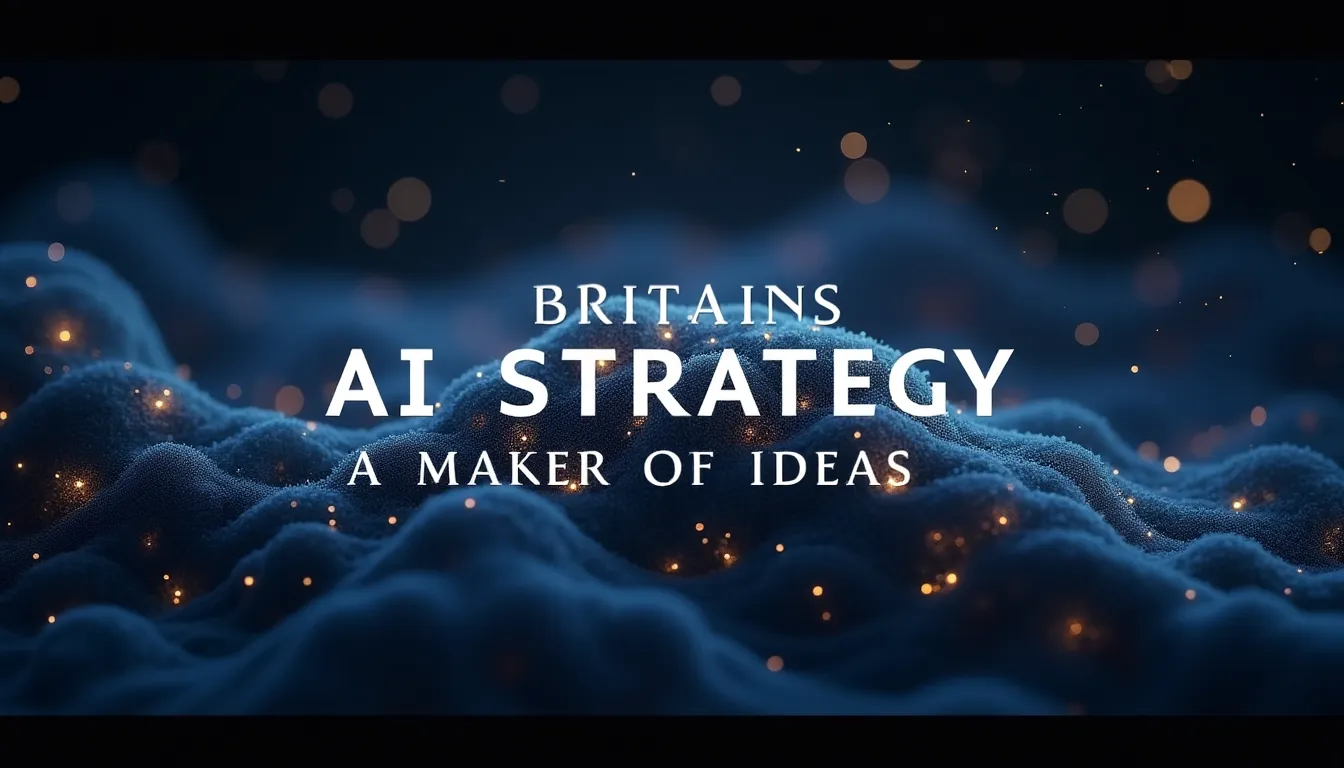Britain’s AI Strategy: A Maker of Ideas

Over a decade ago, renowned physicist Prof Stephen Hawking warned that unchecked advancements in artificial intelligence (AI) could pose a threat to humanity’s future. Fast forward to today, and the concerns surrounding AI’s rapid development remain as pressing as ever. In light of this, over a thousand AI experts issued a call for a six-month moratorium on AI research to establish safety standards. This plea exemplifies the unease about losing control over AI systems that are rapidly evolving beyond current frameworks.
In the backdrop of these deliberations, France and India are set to host a summit aimed at establishing international agreements on AI safety. This event follows the 2023 summit held in Bletchley Park, reflecting a global recognition of the importance of safeguarding human agency in an era where decision-making increasingly relies on technologies.
However, amid these noble initiatives, a more alarming situation has emerged with the recent actions taken by former President Donald Trump. Last week witnessed the dismantling of Joe Biden’s AI safety guidelines, which required AI companies to disclose safety test results of their models to the government before public release. These regulations aimed to mitigate risks related to economic, social, and security impacts of AI technology. By labeling these measures as “anti-free speech” and “anti-innovation,” Trump’s administration has thrown into jeopardy the necessary frameworks that could help manage AI’s complex challenges.
Alongside the scrapping of these safety accords, Trump proposed a remarkable $500 billion allocation to the ambitious AI Stargate project, with a substantial portion aimed at expanding the infrastructure necessary for AI developments. It is with this investment that the US seeks to reinforce its position as a dominant player in the field of AI, driving innovation but also raising legitimate concerns about the implications of such unregulated growth.
Concerns surrounding employment are pervasive, with predictions from Goldman Sachs estimating that 300 million jobs globally could be lost to automation due to rapid AI advancements. Furthermore, with the expected rise in automated systems overseeing personal choices and workplace dynamics, there arises a palpable anxiety among individuals regarding their roles in a tech-centric society. The potential for misinformation and abuse leveraging AI technologies additionally complicates the landscape, provoking fears of personal and societal harm.
Despite these challenges, the UK’s AI Opportunities Action Plan emphasizes the technology’s transformative capabilities for good. Highlighting successful AI applications like DeepMind’s AlphaFold, which has dramatically accelerated protein research, the plan seeks to encourage innovative uses of AI that lead to improved education, healthcare diagnostics, and analytics.
Nevertheless, the authors of the plan caution that while seizing the opportunities AI provides, it is critical to implement robust regulations that do not stifle innovation but ensure public safety and trust. The need for Britain to not only import AI solutions but to actively contribute to developing homegrown technologies echoes throughout the document. The formation of a new government unit, UK Sovereign AI, is proposed as a strategy to bolster national capabilities in AI innovation.
British Prime Minister Keir Starmer’s endorsement of the plan signifies a commitment to these initiatives, likening Britain’s ambition in the AI sector to historical models of successful state-backed industrial policy. In contrast, America’s approach under Trump serves as a cautionary tale of how unbridled ambition can overlook essential safeguards, potentially endangering society.
The urgency for Britain to claim its position in the AI arena cannot be overstated. While recognizing the competitive nature of global trade involving AI technologies, it is essential for the UK to establish its identity in the sector rather than becoming a mere consumer of American technology. In standing firm against hasty capitulation to US dominance, Britain has a chance to forge new alliances and advocate for responsible AI development globally. The stakes are high; the pursuit of a balanced approach could ensure that AI serves the interests of humanity while fostering trust and innovation in the process.